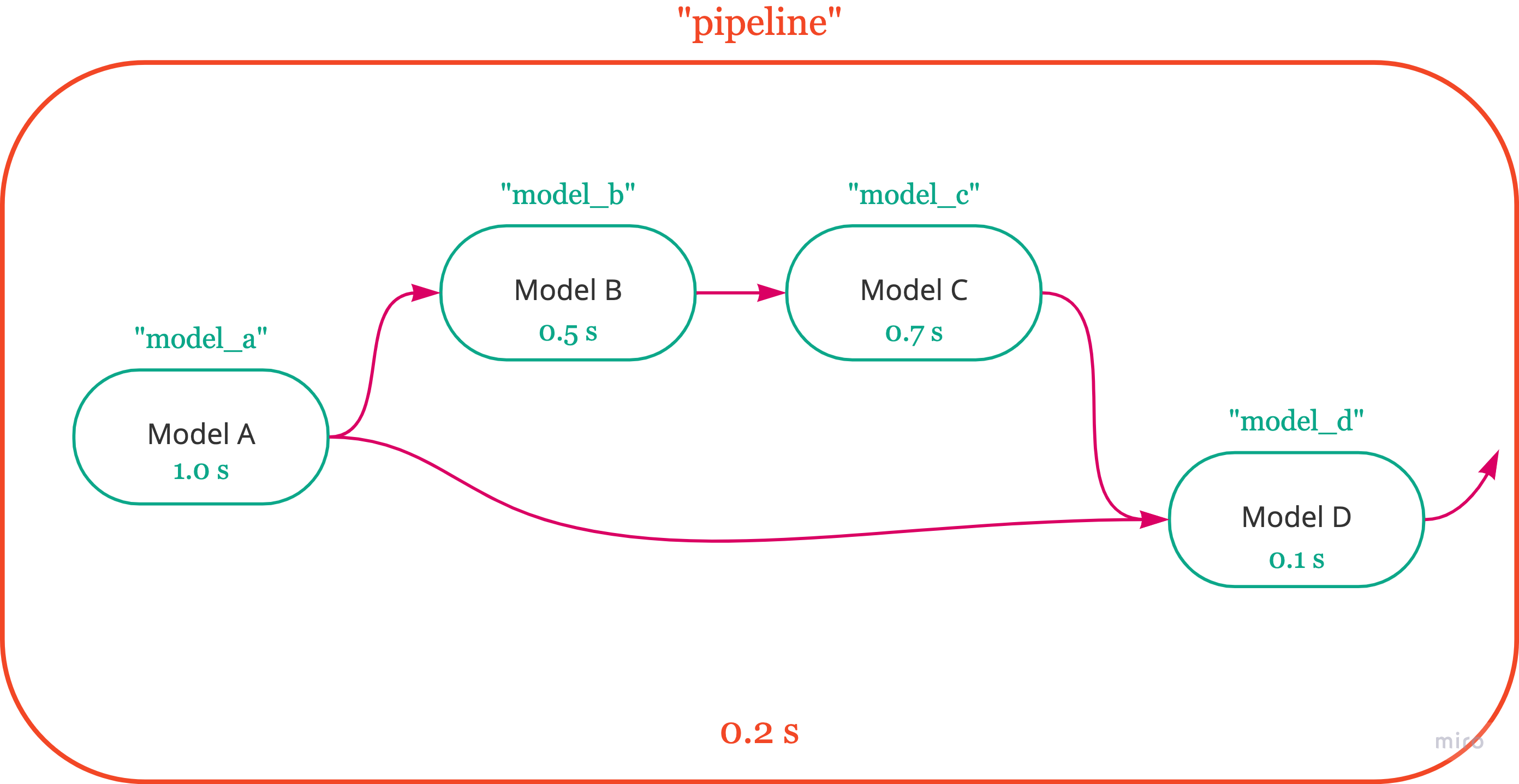SimpleProfiler
SimpleProfiler¶
The SimpleProfiler records predict (predict_batch or predict_gen) time for the model and all its sub-models defined in model_dependencies recursively. The model dependencies graph is built in order to profile the net duration of all sub-model. The following code snippet shows the usage of SimpleProfiler.
import modelkit
from modelkit.core.profilers.simple import SimpleProfiler
model = modelkit.load_model(...) # load a modelkit model
profiler = SimpleProfiler(model)
res = model(item) # == model.predict(item)
profiler.summary() # return profiling result (Dict) or str
The profiling result includes
- "Name": name of model and its sub-models.
- "Num call" : number of calls for each models.
- "Net duration per call (s)" : duration of model minus the sum of all its direct children defined in
model_dependenciesgraph. - "Net percentage %" : net duration multiplied by the number of calls (represented in percentage)
- "Duration per call (s)" : inference time per call (i.e predict) of each model
- "Total duration (s)" : total duration of each model
- "Total percentage %" : total duration in term of percentage for each model
Tips
use print_table=True and tablefmt: str arguments to return pretty table. See: https://pypi.org/project/tabulate/ for all available table formats. (p.s latex format included)
See test_simple_profiler.py for an example:
print(profiler.summary(print_table=True, tablefmt="github"))
| Name | Net duration per call (s) | Net percentage % | Num call | Duration per call (s) | Total duration (s) | Total percentage % |
|---|---|---|---|---|---|---|
| pipeline | 0.200144 | 5.68254 | 1 | 3.52208 | 3.52208 | 99.9998 |
| model_a | 1.00419 | 57.0225 | 2 | 1.00419 | 2.00838 | 57.0225 |
| model_b | 0.504451 | 14.3225 | 1 | 1.50864 | 1.50864 | 42.8338 |
| model_d | 0.10479 | 2.97523 | 1 | 1.10898 | 1.10898 | 31.4865 |
| model_c | 0.704313 | 19.997 | 1 | 0.704313 | 0.704313 | 19.997 |
Note
The definition of "Duration per call (s)" and "Net duration per call (s)" could be tricky when dynamic model or memory caching are involved. For instance, we might have a huge duration difference for each call of the same model : [5.0 s, 0.01 s, 0.017 s, ...] (the first call is longer). In these cases, the "Duration per call (s)" is the average duration of all calls. Hence, the "Net duration per call (s)" should take this into account, and be calculated based on the actual function call chain. See issue #153 for more details.
